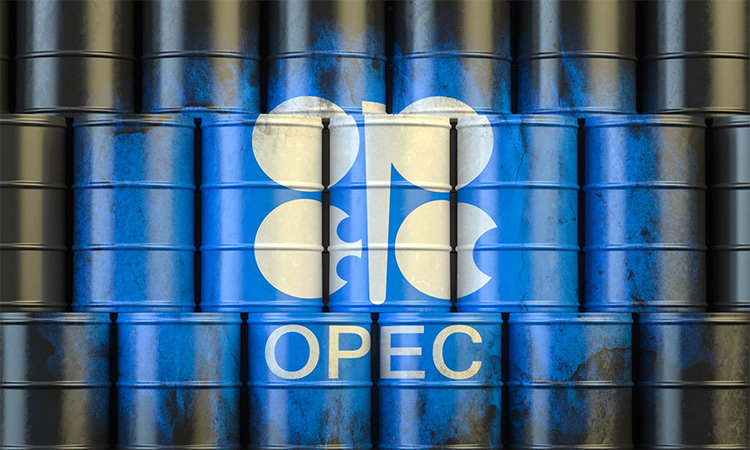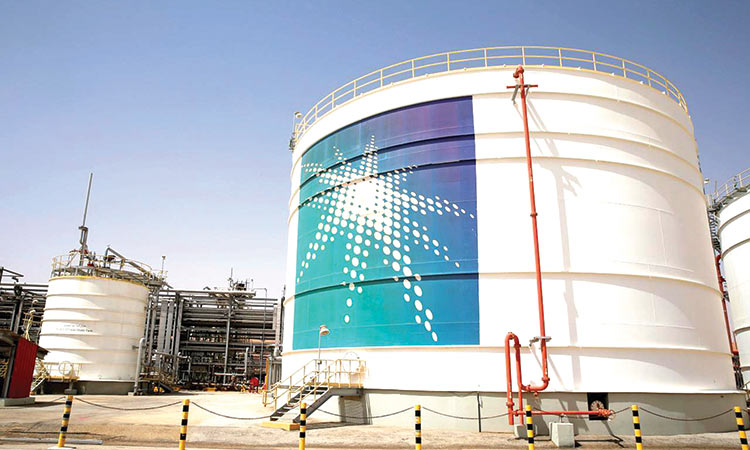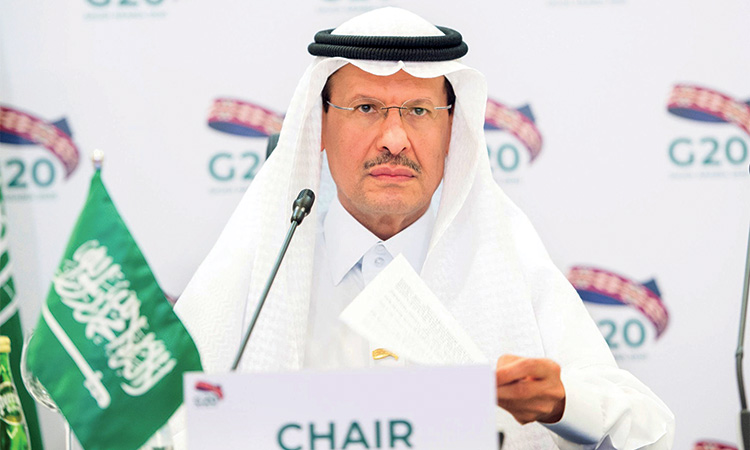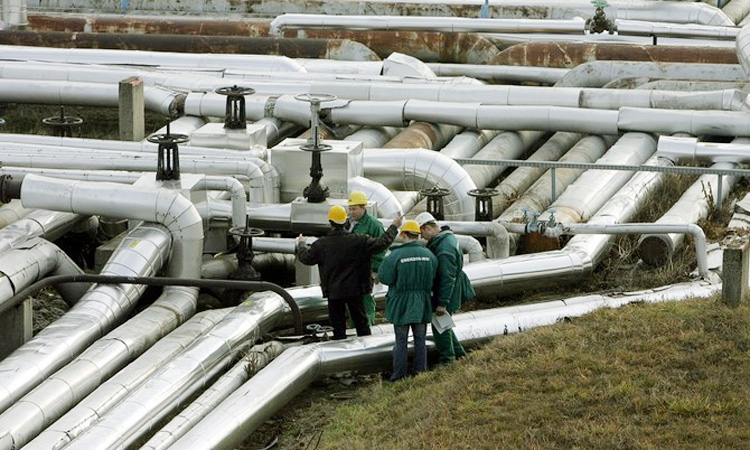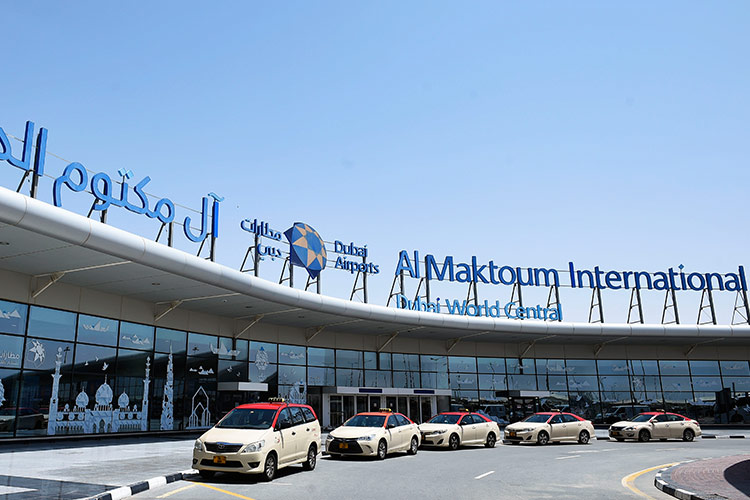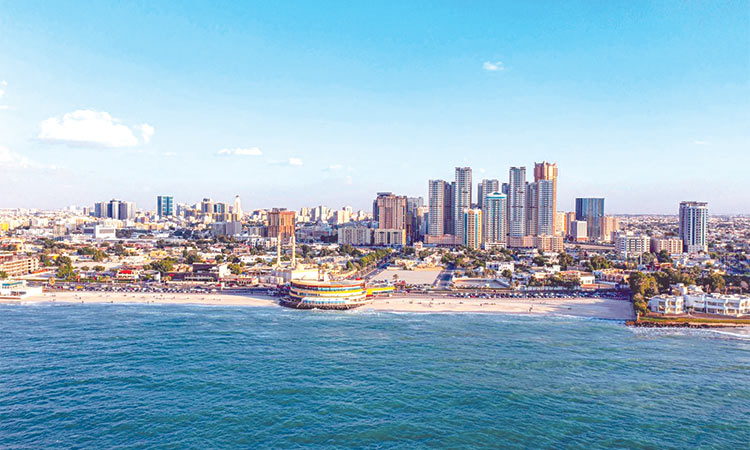Saudi Arabia and Russia plan to extend 1.3m barrels a day oil cut
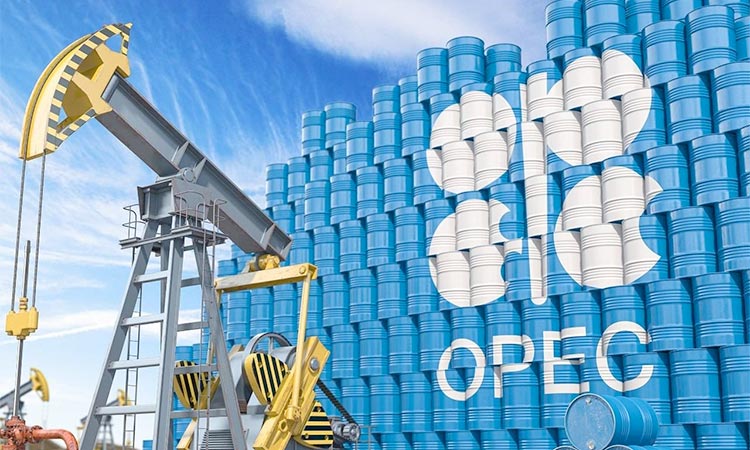
Saudi Arabia said the country would monitor the market and could take further action if necessary.
The dual announcements from Riyadh and Moscow pushed benchmark Brent crude above $90 a barrel in trading on Tuesday afternoon, a price unseen in the market since November.
Saudi Arabia’s announcement, carried by the state-run Saudi Press Agency, said the country still would monitor the market and could take further action if necessary.
“This additional voluntary cut comes to reinforce the precautionary efforts made by Opec+ countries with the aim of supporting the stability and balance of oil markets,” the Saudi Press Agency report said, citing an unnamed Energy Ministry official.
State-run Russian news agency Tass quoted Alexander Novak, Russia’s deputy prime minister and former energy minister, as saying Moscow would continue its 300,000 barrel a day cut.
The decision “is aimed at strengthening the precautionary measures taken by Opec+ countries in order to maintain stability and balance of oil markets,” Novak said.
Benchmark Brent crude traded Tuesday at $90 a barrel immediately after the announcement. Brent had largely hovered between $75 and $85 a barrel since last October.
There was no immediate reaction in Washington, though US lawmakers have criticized Opecc, Saudi Arabia and Russia over their past production decisions.
The average gallon of regular unleaded gasoline in the U.S. stands at $3.81, according to AAA. That’s up just a few cents from this time last year, coming after the Labor Day weekend’s typically higher prices.
The Saudi reduction, which began in July, comes as the other OPEC+ producers have agreed to extend earlier production cuts through next year.
A series of production cuts over the past year has failed to substantially boost prices amid weakened demand from China and tighter monetary policy aimed at combating inflation. But with international travel back up to nearly pre-pandemic levels, the demand for oil likely will continue to rise.
The Saudis are particularly keen to boost oil prices in order to fund Vision 2030, an ambitious plan to overhaul the kingdom’s economy, reduce its dependence on oil and to create jobs for a young population.
The plan includes several massive infrastructure projects, including the construction of a futuristic $500 billion city called Neom.
But Saudi Arabia also has to manage its relationship with Washington. Biden campaigned on a promise of making the kingdom’s powerful Crown Prince Mohammed bin Salman a “pariah” over the 2018 killing of Washington Post columnist Jamal Khashoggi.
In recent months, tensions eased slightly as Biden’s administration sought a deal with Riyadh for it to diplomatically recognize Israel.
But those talks include Saudi Arabia pushing for a nuclear cooperation deal that includes America allowing it to enrich uranium in the kingdom - something that worries nonproliferation experts, as spinning centrifuges open the door to a possible weapons program.
Higher oil prices would also help Russian President Vladimir Putin fund his war on Ukraine. Western countries have used a price cap to try to cut into Moscow’s revenues.
Western sanctions mean Moscow is forced to sell its oil at a discount to countries like China and India.
Oil prices spiked more than 1% on Tuesday after Saudi Arabia and Russia announced a fresh extension to their voluntary supply cuts, stretching a combined 1.3 million barrel per day (bpd) reduction for another three months through December.
Brent crude futures for November were up $1.21, or about 1.4%, to $90.21 a barrel by 1353 GMT, eclipsing the $90 level for the first time since last November.
Meanwhile, US West Texas Intermediate crude (WTI) October futures rose $1.59, or about 1.9%, to $87.14 a barrel.
Riyadh’s decision to extend its 1 million bpd voluntary cut will be reviewed monthly to consider whether to deepen the cut or increase production, state news agency SPA said on Tuesday.
Fellow Opec+ member Russia also prolonged its voluntary cuts through the end of the year “to maintain stability and balance” on oil markets, Deputy Prime Minister Alexander Novak said on Tuesday.
The world’s second-largest oil exporter is reducing exports by 300,000 bpd for the period. It has been cutting output and exports in tandem with Saudi Arabia on top of existing OPEC+ supply reductions.
Russia had said it would cut oil exports voluntarily by 500,000 bpd, about 5% of its output, in August and by 300,000 bpd in September. Russia is also reducing its oil production by 500,000 bpd until the end of 2024.
Although Saudi Arabia was widely expected to extend its voluntary cuts into October, and Russia had indicated that it too planned on expanding its cut through next month, the three month extension was unexpected.
“It would appear they’re trying to double down and capitalize on the recent price moves. Put a big buffer in place for when the cuts end,” OANDA analyst Craig Erlam told Reuters.
Brent, which is used to price over three-quarters of the world’s traded oil, has been rising since late June, after Riyadh first announced its voluntary cuts.
The premium of the front month Brent contract to the six-month contract rose to more than $4 a barrel on Tuesday, the highest since November 2022. This structure, called backwardation, indicates tightening supply for prompt delivery.
Agencies
